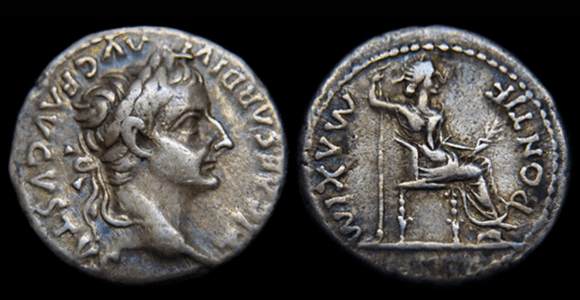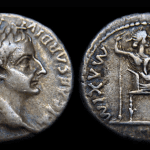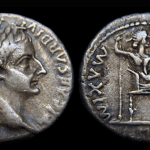
This gives our story this week a bit more context. When Jesus held up the coin and asked whose “image” was on the coin, there were two images, one of Tiberius Caesar claiming he was the Divine Son of God and the image of his mother Livia, the mother of the Son of God. Keep this imagery and its claims in mind for a moment.
Welcome Readers! Please subscribe to Social Jesus Here.
(Read this series from its beginning here.)
In our reading, Jesus doesn’t tell his followers to pay the Roman tax, nor does Jesus tell them not to pay the tax. What Jesus does tell them, holding this coin with its imagery and claims, is to know the difference between their obligations to Caesar and their obligations to the God of the Torah.
Now, consider those coin images and their claims again. Jesus’ Jewish listeners that day would have heard his reply and remembered the words of the Torah itself:
“I am the LORD your God, who brought you out of Egypt, out of the land of slavery. You shall have no other gods before me. You shall not make for yourself an image in the form of anything in heaven above or on the earth beneath or in the waters below. You shall not bow down to them or worship them.” (Exodus 20:2-5)
On the surface, the words “give to Caesar Caesar’s due” would have sounded like an affirmation of paying taxes to Rome and thus kept Jesus out of trouble with the Romans. But to his Jewish listeners who knew the words of the Torah the following words “given to God what is God’s” would have held a much deeper, subversive message.
According to the Torah, someone could not both honor Caesar’s divine claims and honor the God of the Torah. These two claims were diametrically opposed to each other such that one could not honor one without violating the other. You could not serve both the God of the Torah and Caesar as God. The question that had been given to Jesus was an effort to entrap him before the Romans, yet his response had turned the trap around, indicting the elites and powerful who the poor viewed as serving Rome through their positions in the Temple State.
Honestly, I love how slick this story is in the end. The people questioning Jesus sought to render him guilty of violating the Pax Romana before Rome, and instead, they end up being rendered guilty of infidelity to the God of the Torah in the eyes of the people.
How might we apply the lessons of our story in our context today?
We’ll consider one possible application, in part 3.














